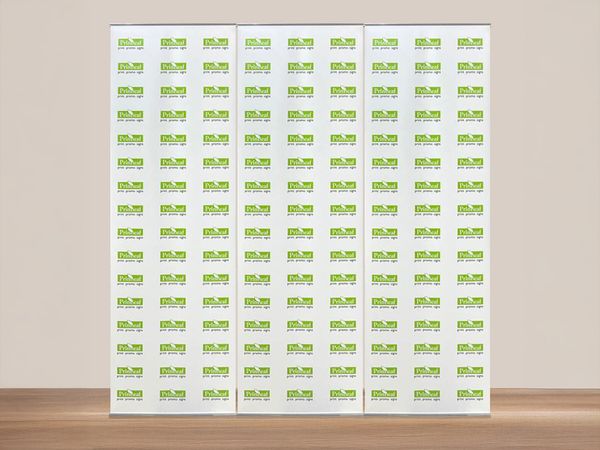The modern world has seen an increasing fixation on beauty, often referred to as “BeautyObsession.” From social media influencers showcasing their latest beauty routines to the thriving multi-billion-dollar beauty industry, it seems that beauty has become a focal point of daily life. The obsession with appearance is no longer just about looking good—it has evolved into an all-encompassing drive that influences everything from self-worth to societal expectations. But what lies behind this obsession, and how does it impact individuals and society as a whole? In this article, we will dive into the facets of BeautyObsession, its influence on personal lives, mental health, and the broader implications for culture and society.
Table of Contents
ToggleThe Rise of BeautyObsession in a Digital World
With the rise of social media platforms like Instagram, YouTube, and TikTok, beauty standards have evolved from mainstream media to become everyday conversations. The once-exclusive world of fashion magazines and celebrity red carpets is now accessible to anyone with a smartphone. BeautyObsession is now ubiquitous, with people constantly bombarded by beauty ideals that are often far from attainable. While beauty was once reserved for the privileged few, today’s digital age has democratized the pursuit of perfection.
BeautyObsession has transformed from a passive consumption of beauty content to an active pursuit. Followers on social media platforms eagerly consume tutorials, beauty hacks, and product reviews, each promising to help them achieve the “perfect” look. But this constant exposure to beauty ideals can lead to a sense of inadequacy for many, especially when individuals begin comparing themselves to flawless images that are often heavily filtered or digitally enhanced.
The Role of Social Media in BeautyObsession
Social media is perhaps the biggest contributor to BeautyObsession today. Platforms like Instagram are built around visual content, encouraging users to share their looks, beauty routines, and personal transformations. This has created an environment where physical appearance is closely tied to validation, likes, and attention. The more likes and comments a beauty post receives, the more that individual is reinforced in their belief that their appearance matters and is being celebrated by others.
However, this validation-based system also brings about negative consequences. People, especially young women, may feel compelled to meet ever-changing beauty standards to garner social approval. The filters, Photoshop, and editing apps available today have made it easier than ever to manipulate one’s image, which further distorts the perception of reality. As a result, it becomes difficult to distinguish between what is authentic and what is merely a curated online persona.
BeautyObsession and Its Impact on Self-Esteem
The continuous pursuit of physical perfection often has detrimental effects on self-esteem. Individuals who are obsessed with their beauty may experience anxiety, body dysmorphia, and other mental health issues. The constant comparisons to others’ “perfect” lives and appearances can erode confidence, making people feel like they are not enough just as they are.
Moreover, this obsession with external beauty can overshadow other qualities, such as intelligence, kindness, and creativity. People who are overly concerned with their appearance may place less value on inner growth and self-improvement. As a result, mental health disorders like depression, eating disorders, and anxiety can develop as individuals attempt to live up to the impossible standards set by the beauty-obsessed world around them.
The Beauty Industry and Its Influence
The beauty industry plays a pivotal role in shaping BeautyObsession. From skincare products that promise flawless skin to makeup products designed to “enhance” your features, there is an endless array of items marketed to those who are looking to meet the beauty ideals of the moment. Beauty companies thrive by creating desires in consumers, making them feel that they need a specific product to achieve the ideal look.
The narrative that beauty equals happiness and success is not new, but today it is amplified by influencers and celebrities who are constantly promoting products. Advertising is carefully designed to make people feel inadequate unless they purchase the latest beauty trends. By capitalizing on insecurities, the beauty industry has flourished, encouraging consumers to spend more in the quest for perfection.
Changing Beauty Standards
The definition of beauty has evolved over the years. In earlier times, beauty standards were relatively uniform, with traits like fair skin, symmetrical features, and slim bodies being idealized. These ideals were perpetuated through traditional media, from advertisements to magazines. However, the digital age has introduced a more diverse and flexible understanding of beauty, although many of the old standards still prevail.
With the rise of body positivity movements, there has been a push for more inclusive representations of beauty. Social media has played a large role in promoting these changes, with influencers of various body types, skin tones, and features now sharing their beauty journeys online. While this has led to a greater appreciation for diversity, there is still a long way to go before beauty obsession is fully democratized and free from harmful stereotypes.
However, many aspects of traditional beauty standards still remain pervasive in the beauty industry. The constant influx of celebrity culture, fashion magazines, and advertisements continues to prioritize certain traits, leaving those who do not fit these standards feeling overlooked or undervalued. While diversity is slowly being embraced, the pressure to conform to a narrow beauty ideal remains strong, reinforcing the cycle of BeautyObsession.
Cosmetic Procedures and Their Role in BeautyObsession
With the increasing availability and accessibility of cosmetic treatments, more people are turning to procedures in the pursuit of ideal beauty. Botox, fillers, rhinoplasty, breast augmentations, and other cosmetic surgeries have become commonplace, especially among individuals who feel that they cannot meet the standards of beauty portrayed in media.
For some, cosmetic procedures are a means of boosting confidence and improving self-esteem. However, for others, these procedures can be an indication of a deeper issue—an unhealthy obsession with external appearance. The problem arises when cosmetic procedures become a way to cope with insecurity or a desire for perfection that is unattainable. This growing reliance on cosmetic procedures can exacerbate feelings of dissatisfaction and lead to an unending cycle of alteration.
BeautyObsession is not just about maintaining a youthful appearance or adhering to a narrow definition of beauty—it can also be about striving to meet specific, often unattainable, ideals set by society. Many people who undergo cosmetic treatments find themselves caught in a cycle of constantly chasing the next procedure or product that promises to help them attain perfection.
The Psychological Effects of BeautyObsession
The psychological toll of BeautyObsession can be significant. People who constantly strive for physical perfection may face low self-worth and an inability to appreciate their natural beauty. This obsessive focus on external appearance can overshadow other aspects of life, such as relationships, career growth, and personal development.
Moreover, BeautyObsession is often linked to feelings of isolation. In a world where everyone seems to be constantly perfecting their image, those who are unable or unwilling to conform to these ideals may feel left out or inadequate. The pressure to keep up with beauty standards, whether through makeup, skincare, or cosmetic enhancements, can feel overwhelming. This can result in an unhealthy relationship with beauty, one that is based on superficial standards rather than a deeper sense of self-acceptance.
BeautyObsession and Its Impact on Social Media Culture
Social media has been both a catalyst and a consequence of BeautyObsession. On the one hand, it provides a platform for people to celebrate their unique looks, share beauty hacks, and build communities centered around self-care. On the other hand, social media has also created a culture of comparison and perfectionism. The curated nature of Instagram and TikTok means that people are constantly exposed to images that may not reflect reality, further amplifying the pursuit of an unattainable ideal.
Social media influencers, many of whom are paid to promote beauty products, set trends that millions of people follow. This creates an endless cycle of consumerism, where the pressure to look a certain way can become overwhelming. Influencers are often seen as role models, and their endorsement of products or procedures can push followers to buy into the idea that their happiness and success depend on their appearance.
Finding Balance in a Beauty-Obsessed World
While it’s natural to want to look your best, BeautyObsession can become problematic when it interferes with mental health, self-esteem, and well-being. The key is to find a healthy balance. Self-care practices like skincare routines and makeup application can be empowering when done for the sake of enjoyment, not as a means to achieve perfection.
At the same time, it is important to focus on self-love and inner beauty. Embracing your natural features, accepting your flaws, and prioritizing mental well-being can help break free from the cycle of BeautyObsession. True beauty comes from confidence, self-compassion, and a deeper understanding that you are worthy of love and respect regardless of how you look.
Conclusion
BeautyObsession is a complex phenomenon that shapes how we perceive ourselves and others in today’s world. The desire for beauty and perfection is natural, but when taken to extremes, it can lead to mental health issues and an unhealthy relationship with one’s appearance. While the beauty industry, social media, and influencers play a significant role in perpetuating these ideals, it is up to individuals to define beauty for themselves. Striving for external perfection should not come at the cost of self-love, authenticity, and mental well-being. In a beauty-obsessed world, it’s important to remember that true beauty is found in embracing one’s unique self, flaws and all.




